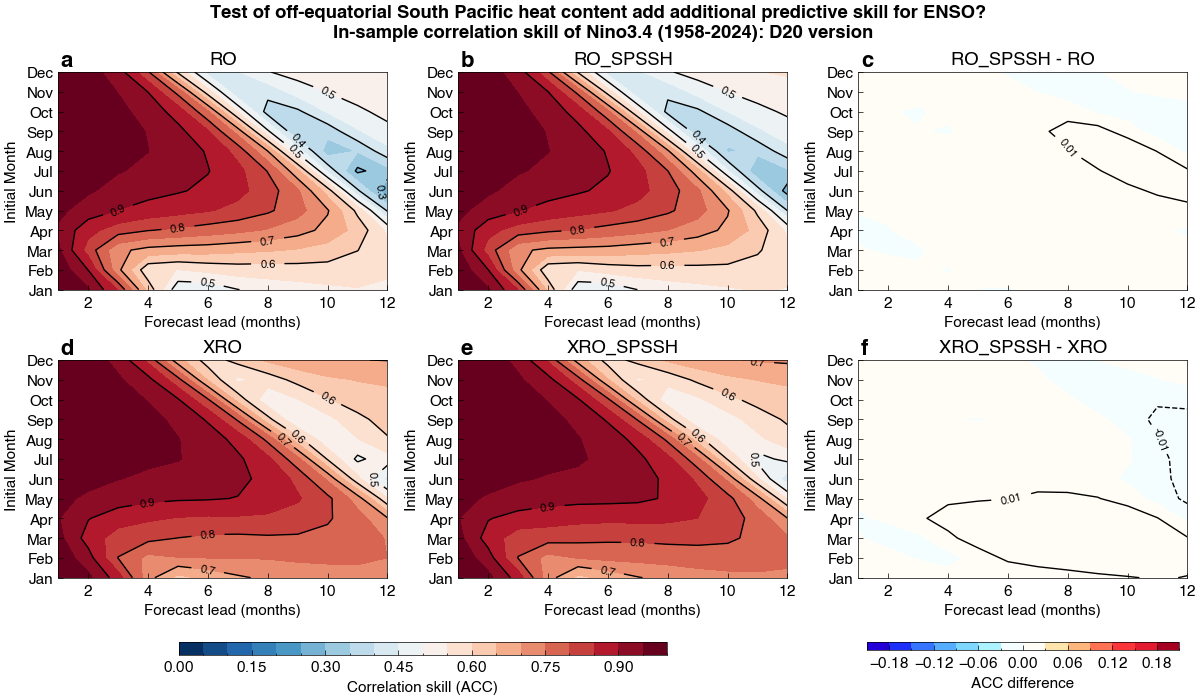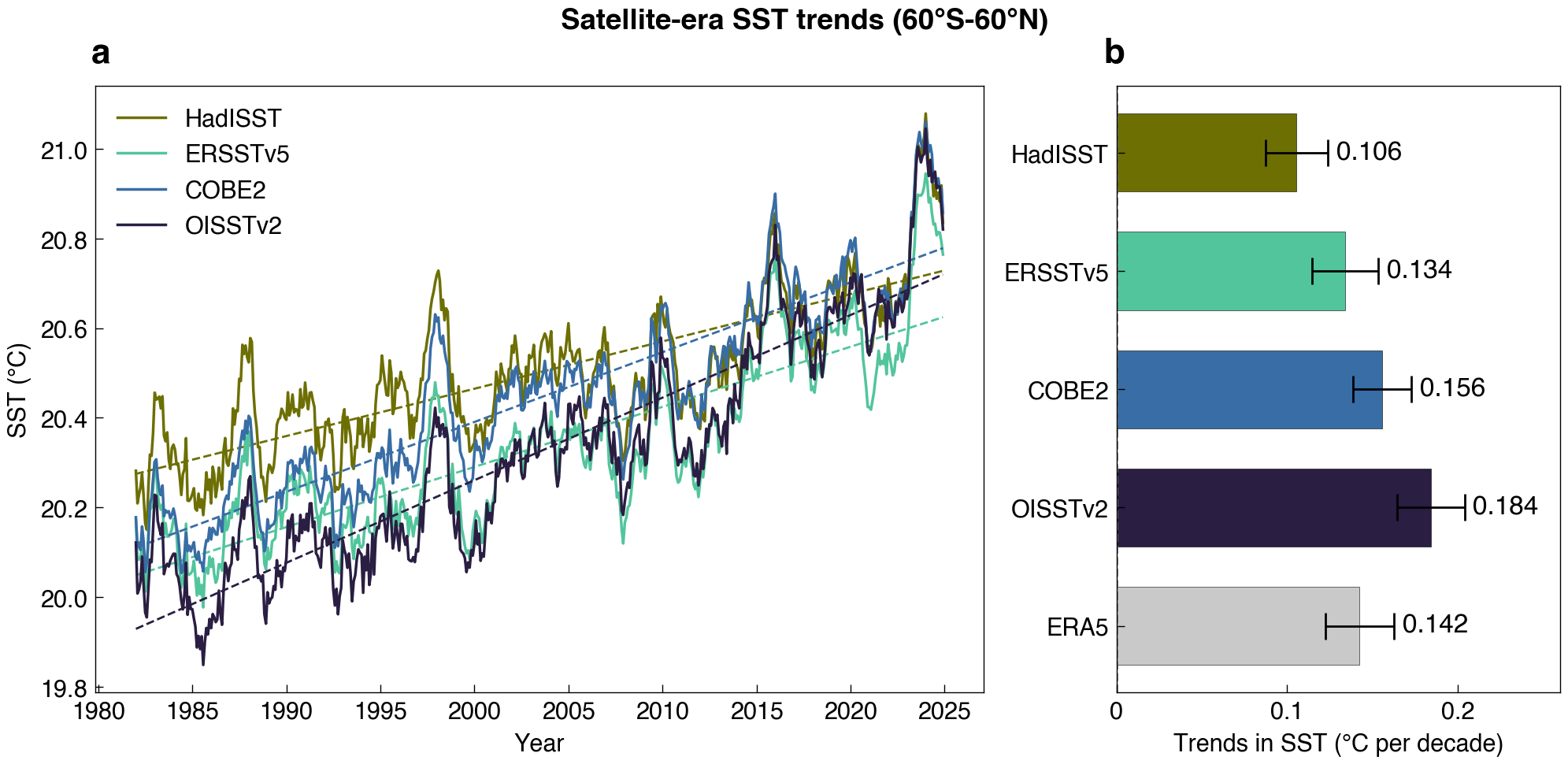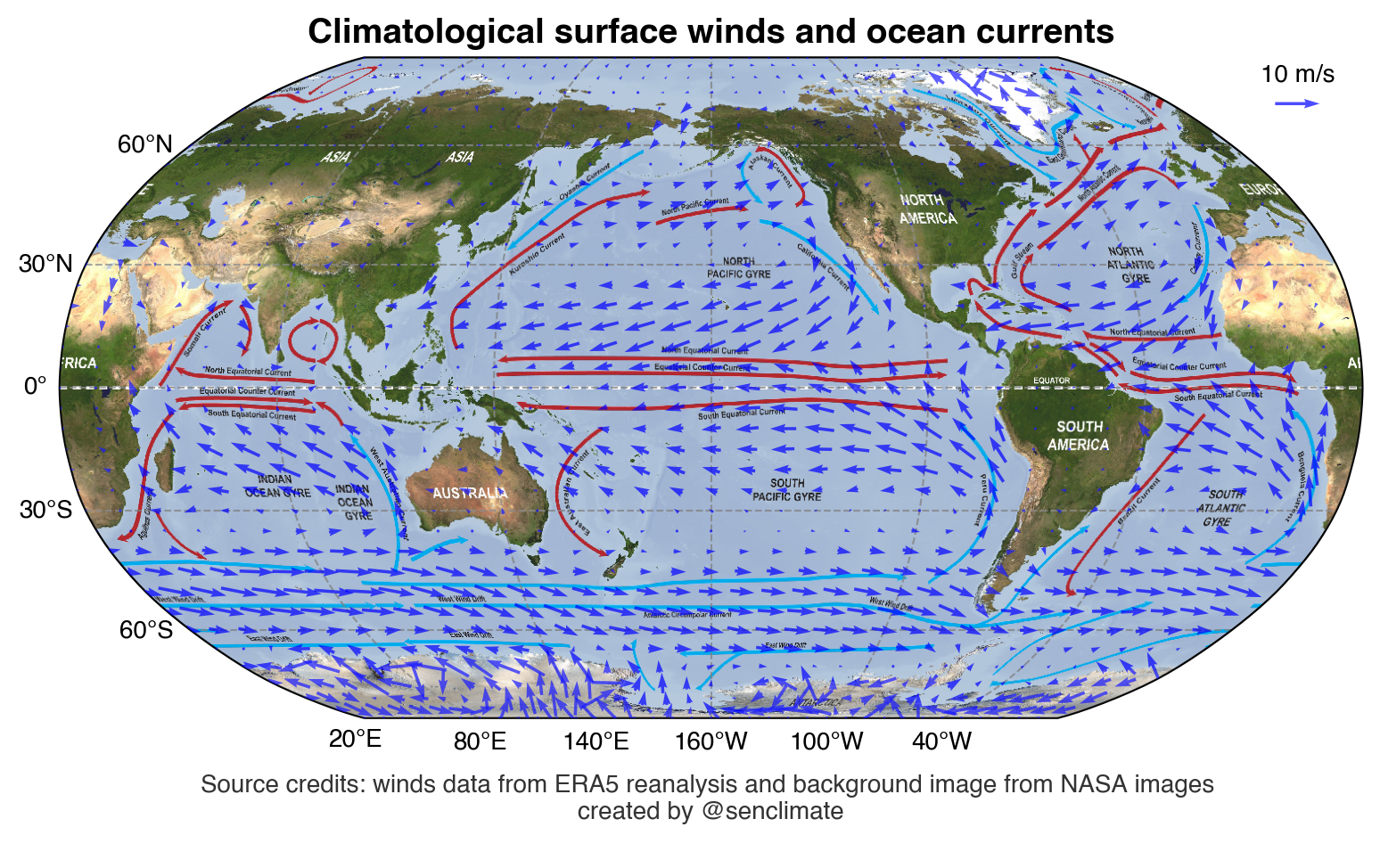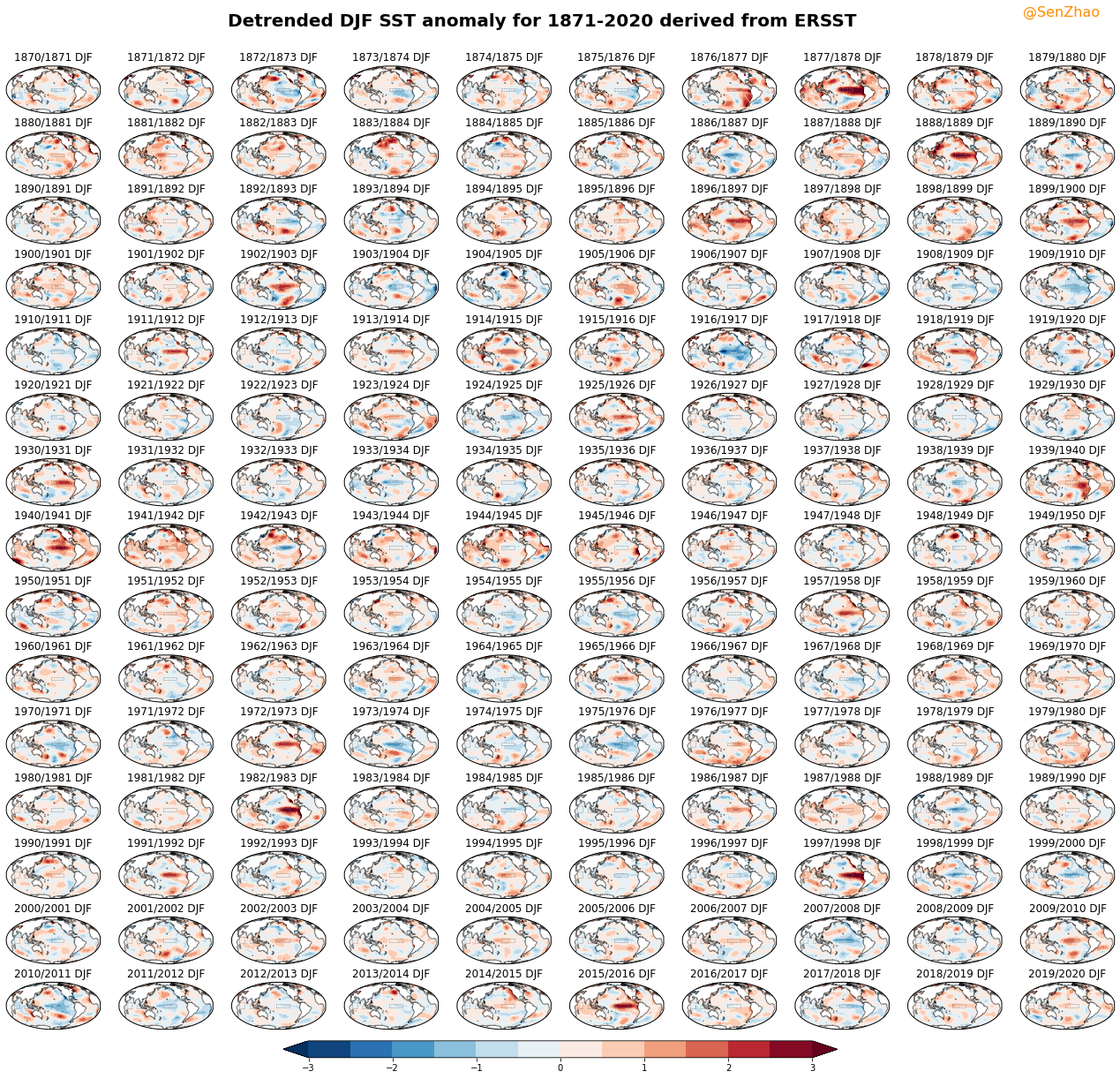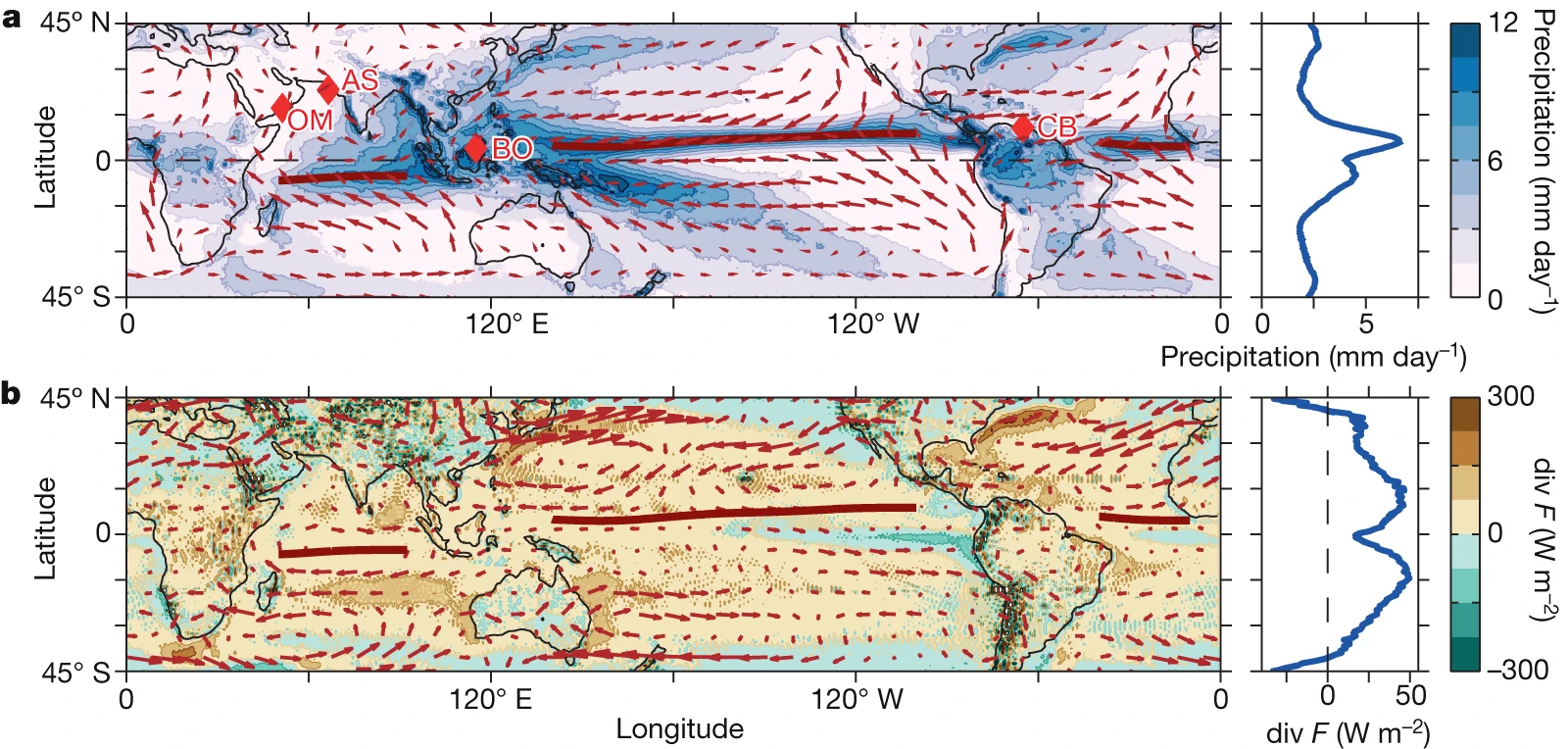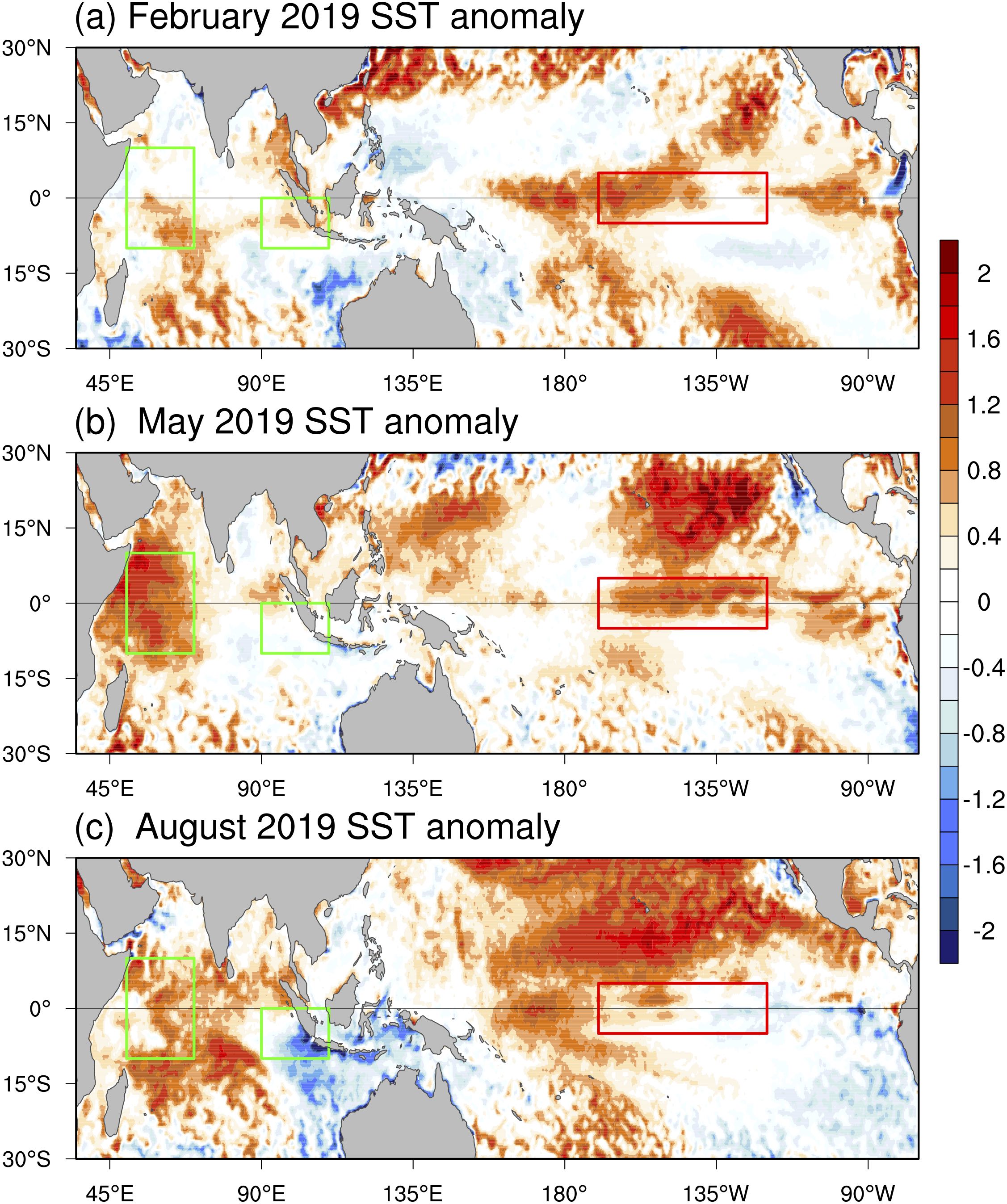Posts
Does Off-Equatorial South Pacific Heat Content Really Provide Additional Predictive Skill of ENSO Beyond the Equatorial Pacific Heat Content?
This post discuss the results from Yang et al. (2025) GRL on the influence of off-equatorial South Pacific heat content on ENSO prediction
SST datasets reveal substantial differences even during the Satellite era
This post explores differences of SST datasets, reproducing Menemenlis et al. 2025 NCC
Climatological Surface Winds and Ocean Circulation
This post explores the global pattern of surface winds and their role in driving ocean circulation, including major currents and gyres. A Python example is provided to reproduce a climatological wind map using ERA5 data.
Jupyter Notebook: Plotting Sea Surface Temperature Anomalies (SSTA)
A practical Jupyter Notebook guide to visualize sea surface temperature anomalies by year and season, using Python, xarray, and Cartopy.
Why is ITCZ mean position north of the equator?
This post reviews two leading theories explaining why the ITCZ is north of the equator: air–sea interaction feedbacks and hemispheric energy transport asymmetries. It highlights mechanisms such as WES feedback, ocean-atmosphere coupling, and cross-equatorial energy flux driven by Atlantic meridional overturning circulation.
The 2019 Indian Ocean Dipole event
A strong positive Indian Ocean Dipole (IOD) developed in 2019, with significant regional climate impacts. This post examines its evolution, possible links to ENSO, and a null hypothesis framework explaining its dynamics.
